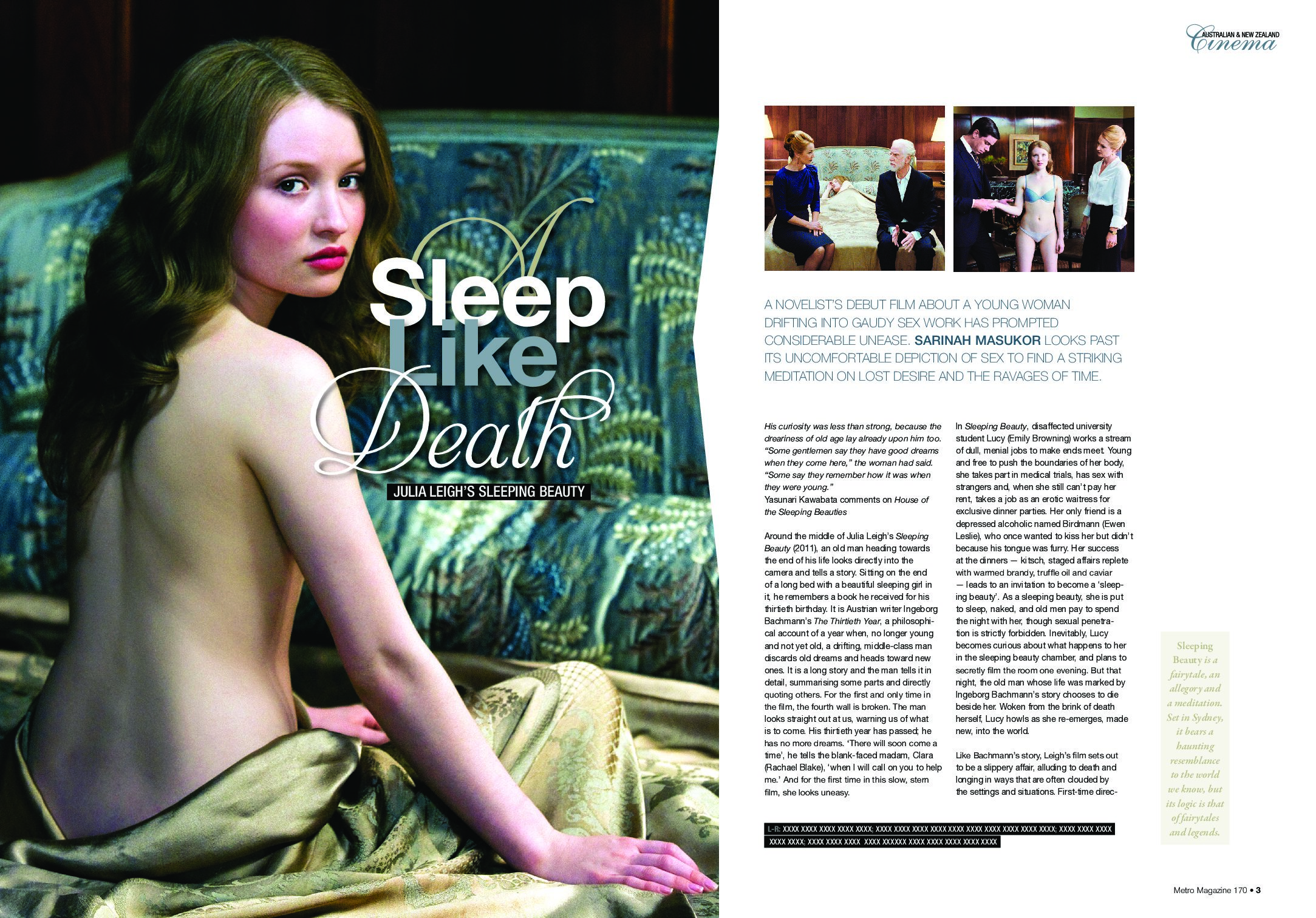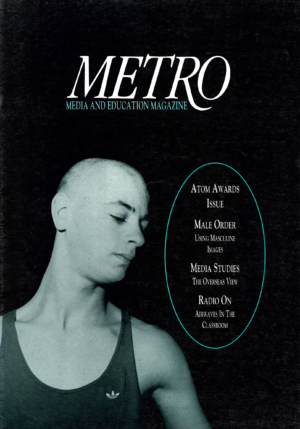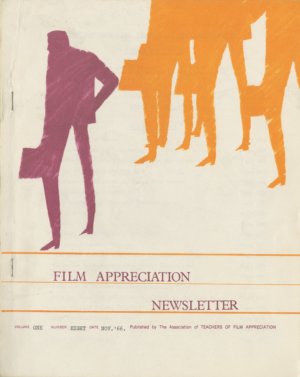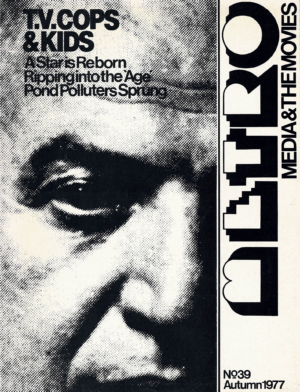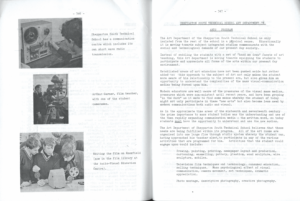Metro has long held an esteemed place in the Australian screen industries, as it is one of the only publications that devotes significant attention to local releases at every level. Less obvious, but just as important, is the contribution Metro makes to the local publishing world. What sets it apart from so many other film publications isn’t only its commitment to long-form film criticism, but also its almost stubborn refusal to cut editorial resources or standards: it continues to maintain the highest quality, attracting brilliant editors and some of the best film writers in the country.
I worked as a subeditor on Metro from 2008 to 2017 (excluding a short hiatus), and I worked under the three editors I interviewed for this piece. I have seen the magazine evolve with the unique insight, background and passion that each editor brought to the publication; the contributions of each have remained long after their proponent’s departure, culminating in the title that we know today.
Natalie Book, who helmed the magazine from 2007 to 2010, says she was attracted to the role because ‘there wasn’t really anything else like Metro around’. When she came on board, she felt that Australian cinema was going through a difficult period: ‘In 2008, I think, only one local film, Baz Luhrmann’s Australia, made more than A$3 million at the domestic box office […] I wanted to make sure we were documenting all of it, looking carefully at why a film worked or didn’t – both critically and commercially.’ In addition to exploring the state of the national industry, Book introduced regular sections on formats that didn’t get much media coverage – short narrative film, short-form and long-form documentary – and revived the games section.
When it came time for Book to move on, she suggested that then-subeditor John Marnell be considered as her replacement. After assuming the role, Marnell worked hard to cultivate more pieces that ‘were trying to situate an analysis within the broader culture of Australia’, which he felt was one of Metro’s strengths. It was a strength of Marnell’s, too – his background was in cultural analysis rather than film, specifically, and he had previously worked at esteemed literary journal Overland. This experience with sociocultural analysis led Marnell to curate sections based on thematic links ‘rather than just whatever the release schedule was’; he recalls, for example, looking at ‘both Indigenous filmmaking and documentary as social-justice vehicles’.
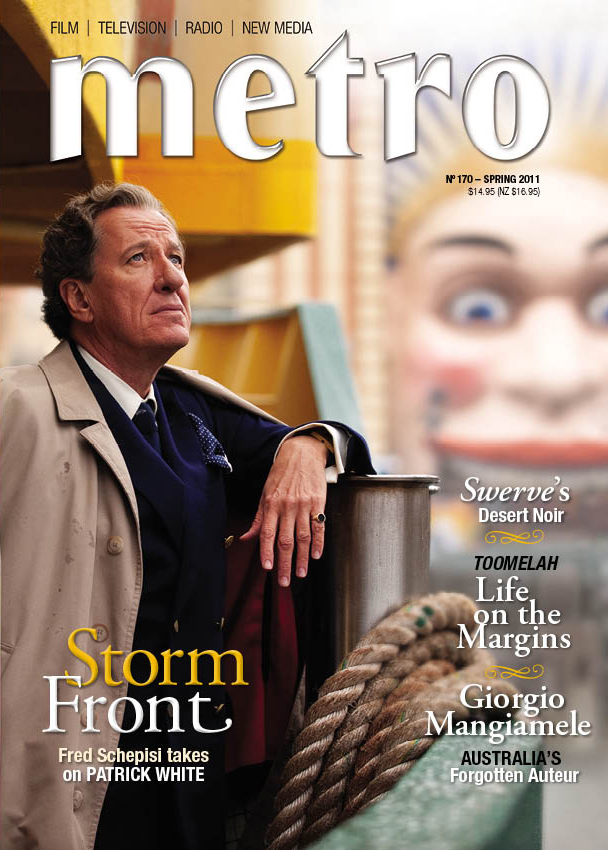
Nick Tapper had recently completed a postgraduate degree in publishing when he took over from Marnell in 2011. Tapper, who had previously edited art and film writing, was interested in the unique space Metro occupied ‘between the film industry, critics and academia – trying to stimulate a discussion that encompassed all three’. Tapper saw the magazine as a means of considering ‘what Australian films are trying to do with intellectual rigour while understanding how the industry works and why particular kinds of films get made, for good or ill’, something that he continued to foster. He was also keen to ‘push the possibility of Metro as a space for literary writing within film criticism – elevating film criticism as an artform in a way that is only rarely practised in Australia’.
When I ask Tapper to reflect on the achievement he was most proud of at Metro, he recalls that he was pleased to have started the regular Scope screen-industry columns, which remain today, as well as having contributed to Metro’s ever-expanding pool of writers. Indeed, just as each editorial lead guided the magazine’s general direction and thematic preoccupations, the writers they nurtured or recruited during their tenures had as significant an impact: without great writers, there is no magazine, but without great editorial guidance, there are no great writers.
Book gushes over veteran film writer and long-time Metro contributor Brian McFarlane – ‘Brian is a national treasure. I don’t know what else to say. I can’t imagine that there is anyone who knows more about cinema than he does’ – and Asian film expert Mike Walsh, whose missives on Asian cinema she remembers as ‘incredibly smart, accessible and entertaining’. In keeping with his own background, Marnell brought several non-film writers on board, including some from his connections at Overland and other literary spaces, broadening the magazine’s scope and reach.
Tapper singles out noted writer and filmmaker Sarinah Masukor as a particularly pleasing addition to the roster during his editorship. Like many other writers, Masukor began contributing to Metro relatively early in her career. While the magazine’s commitment to long-form analysis has always attracted established writers looking to engage in extended critique rather than straightforward review, Metro has also consistently published emerging writers. The editorial staff’s dedication to, and enthusiasm for, new voices in writing is, in fact, an extension of ATOM’s admirable support for editors early in their careers.
The three editors I speak to all took up the position before they had turned thirty, and each has gone on to a prolific career in publishing: Book, until recently, worked as deputy editor for Melbourne-based politics and culture magazine The Monthly; Marnell founded a book imprint, MaThoko’s Books, in South Africa and is now a researcher with the African Centre for Migration & Society at the University of the Witwatersrand in Johannesburg; and Tapper is now commissioning editor at literary publisher Giramondo in Sydney. Their experience with Metro was instrumental in setting them up for such accomplishments. Book explains that working on the various article forms ‘gave [her] a great grounding in sensitive editing and rigorous fact-checking – and pretty much every aspect of the magazine-production process’; Tapper ‘learned a lot about working with and commissioning writers’ during his time at Metro – skills that are critical in his current role.
Marnell is especially thankful for the trust ATOM showed him at such an early point in his career: ‘I was really given the privilege and the freedom to make substantial decisions about how content was developed, how the magazines were curated and what we were trying to do with the broader ATOM project.’ The magazine’s commitment to supporting the publishing industry, in addition to the monumental support it offers the screen industries, cements Metro’s place as a precious fixture in the national arts landscape.
